
Adoption and Awarenss: Adoption AND Language
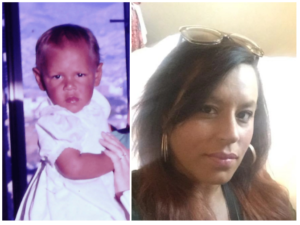
LET’S TALK ABOUT LANGUAGE. Adoption AND language. I write ‘and’ with capital letters because rather than using the combined form Adoption Language, I think separating the two will help us as we take a closer look at how language relates to adoption, what happens when we try to control it, and why I call for an alternative to looking at positive versus negative language in relation to adoption.
Adoption AND language
To me, adoption language as one combined term suggests that there is such a thing as a specific language that should or could be applied when talking about adoption.
It turns language about adoption into a stagnant concept with limits and a frame to stay within when we are talking about adoption.
What happens if we separate the two?
If we instead separate the two by adding ‘and’ in the middle, I think we leave much more room for differing ways of speaking about adoption.
We are now talking about fluid action that offers room to pick and choose among the entire scope of language, rather than the limited frame of Adoption language when speaking about adoption.
And depending on who you speak with, the differences will range from slight nuances to outright opposites.
With this idea of separation between the concept of adoption and the concept of language as our foundation, let’s take a look at Positive Adoption Language (PAL), who benefits from PAL, and what I would suggest as an alternative to PAL.
Positive Adoption Language (PAL)
If you do a quick google search on Adoption and language, you will find several hits for websites and blogs offering to break down and explain what words to use and what words not to use when speaking of adoption. What you will also find is that among those at the top, none are by adoptees. At least not ‘out of the fog-adoptees.
That alone should sound some alarms to anyone who is claiming to want to advocate for adoptees, their own adoptee child, or just adoptees in general.
Terms like Positive Adoption Language (PAL), Respectful Adoption Language, and even Accurate Adoption Language are used to offer a guide on how not to make adoption sound negative. It is all presented as if it is for the adoptee child. Claiming that not being aware and using positive adoption language can be hurtful to the adoptee child.
To me, as an adoptee (who has come out of the fog) it seems clear as day that this effort is one that first and foremost benefits the very people it is coming from and to a large extent the adoptive parents.
Sadly, the truth is that the people it runs the risk of hurting the most are the very people it claims to protect; the adoptee (child/ren).
After all, adoption presented in a positive light by the adoption agencies makes perfect sense to me, much like any company or business is depending on people thinking of them as providing value, being relevant, or at the very least being necessary. Or else they would cease to exist. In the case of ‘regular’ business, we aren’t fooled to believe that it is all out of the goodness of the hearts of the people owning the business, but we know it is for-profit and we know that advertisement is potentially inflated to look a bit better than reality. A bit more attractive.
But with adoption, much of society is still being strung along by a narrative that is incomplete at best and potentially dangerous at worst. I do not say this lightly. Many adoptees will tell you that they do not feel the language they have been given describes their reality. They will tell you that when they have tried to voice this, they have been anything from dismissed to outright gaslit. My family, friends, and perfect strangers.
The aim to present adoption in a mainly positive light is used on the premise that it is for the child. But who actually benefits from this? Prospective adoptive parents and adoptive parents absolutely do. They get to lecture people on the proper language to use for talking about adoption. In this, they get to feel like they are advocating for their adoptee child, they get to sound like they know something most people don’t know, and they get to tell themselves that adoption is a wonderful thing, with little to no hesitation or resistance to their perceived reality.
Do the adoptee child benefit from this? I am sure some do.
I think this is a good time to remind anyone reading that there are as many experiences and opinions on adoption as there are adoptees. I do not suggest that adoption is either only good or only bad. My willingness to accept that not all of us share the same experience and that there is room for all of us to speak our truth is what leads me to feel this is such an important topic.
ALL adoptee perspectives are valid, are real, and are something to learn from if you are a person who is in any way connected to an adoptee. The reason I chose to highlight the problems in adoption, the problems with PAL, and the dark sides of adoption is simple. The bright side needs no reinforcement. It is dominating already and has been for many years.
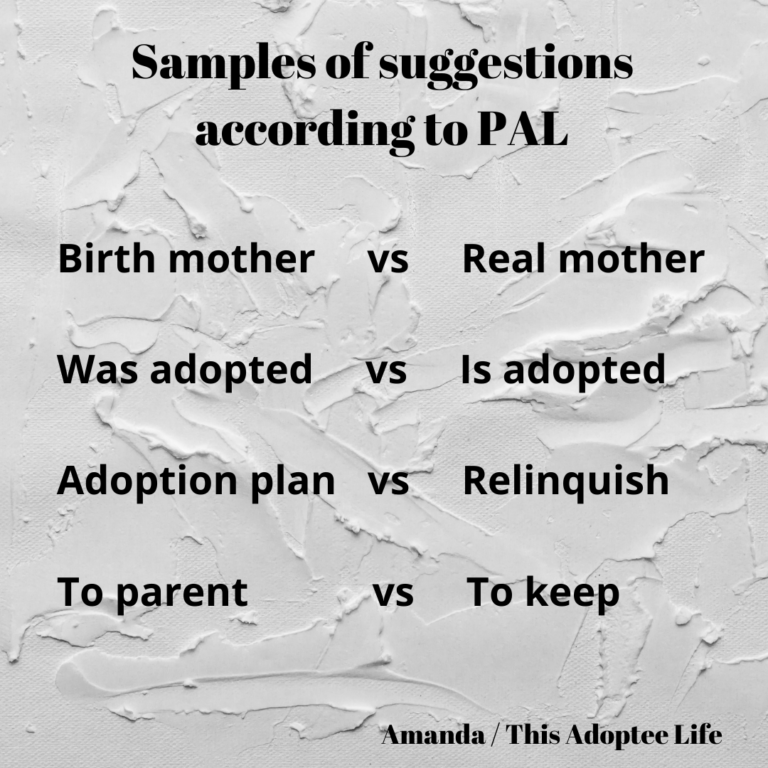
Honest language rather than positive or negative
I did not know until doing some research for this specific post that Honest Adoption Langauge (HAL) is an actual thing. However, I did find it in a Wikipedia article.
On several occasions, I have said that instead of focusing on positive language, we should focus on honest language. I am not sure I subscribe to the presented language that I have seen that would fall under HAL. And since writing the intro to this post, I would say I now call for language about adoption that is honest, again separating the words language and adoption for the reasons mentioned above.
What I mean when I call for honest language, is that it is should be up to each and every adoptee to get to choose the language they use to speak of their own experience. This is not to say that we can’t have some go-to phrases or terms, but the key to me is that we don’t try to control the experience by controlling the language used to describe it.
To give you a personal example, I do not say that I was CHOSEN, but rather I would say that I was available for adoption. My adoptive parents did not choose me. I was offered to them and they accepted. It feels more hurtful to me should I have to say that I was chosen, when I never ever experienced being chosen. It’s asking of me that I live in denial.
I talk about myself as an adoptee. To say that the ‘correct’ term is “was adopted” completely goes against how many adoptees experience themselves and their life. It puts the adoption in the past; a terminated event.
But I myself say, and I know many fellow adoptees agree, that once adopted, always adopted. I AM an adoptee. I was adopted, I am adopted. The event is in the past. The event turned me into who I am (not only, but in large part).
To speak of an adoption plan leaves out all the other reasons, ways, and possibilities for why a child is adopted. It sounds beautiful, but truth is that for many of us there may not have been a plan involved at all. No choice. No say. We have heard the stories of first mothers in situations of no support, the stories of lies, and corruption, and even kidnappings making children available for adoption, domestically and internationally.
I would be happy to dig deeper into an actual discussion on these terms individually but would make that a separate post, or even conversation. For now, I hope to have shed some light on how these terms and the attempt at controlling our experience as adoptees, by using language that is often more comfortable for adoptive parents than for adoptees themselves, is quite misguided.

Control language, control minds, control (expected) reality?
We might not be in the state of Orwell’s 1984 and Newspeak when it comes to the attempt by adoption agencies to control the language used in adoption. But, it is worth noting that language matters.
I would argue that by controlling language, you are well on your way to having an impact on people’s perception, or at least on people’s expectations. What does that mean in relation to adoption?
It means people have been led to believe that adoption is good by the definition of the word and concept. That it exists solely for a good reason/cause. That adoption is necessary. What follows is that adoptees who speak against this narrative are easily seen as ungrateful, selfish, hurtful, angry. They may be seen as having any in a long line of issues, in spite of adoption having given them a better life, rather than because of the loss and trauma that came before adoption, or sometimes even because of adoption.
If this is news to you I know this can be heavy stuff to hear/read. It sure was to me when I first found out about all of the dark sides of adoption. That is a separate post as well, but suffice it to say that many adoptees share stories of hardships, struggles, and suffering in their lives that stem from the trauma of loss, followed by the veil of denial that adoption lays over our reality. Paul Sunderland suggests in his lecture on Adoption and Addiction that we should speak of relinquishment rather than adoption. That there is seldom just one relinquishment in an adoptee’s life and that adoption essentially IS denial.

Why is this important?
If we constantly focus on using positive language to speak about adoption and the steps in the process of adoption and the events involved, we not only dismiss the reality many adoptees live but give room for people to ignore, dismiss, and outright gaslight adoptees who speak up.
Questions like
– Why aren’t you grateful?
– How can you be sad about something you know nothing about?
-Would you have rather been aborted?
become okay.
I can’t tell you how many times I have been asked these kind of questions by people who are truly chocked at hearing about adoption in anything other than a positive light.
Yes, sure they can understand that there may have been things that were hard to deal with, but few are aware of, or even open to hearing about the full scope of the adoptee experience and reality once that experience starts deviating from the narrative of adoption being FOR the children.
And to revisit that last question, it is worth noting that many adoptees would answer yes.
Is is important to bring these topics into the light. Relying on adoption agencies and adoptive parents to learn about adoption isn’t going to give you the whole picture.
And why is it important to understand the whole picture? Linguistically and realistically.
Because at the end of the day, lives depend on it. I will re-visit this topic in upcoming blog posts and hope to have introduced an idea of where this conversation can and hopefully will be going moving forward.
Thank you so much for being here, for spending this time with me, reading my post.
I admire you for showing up for yourself and others.
If you would like to share your thoughts or have any questions, please, don’t hesitate to leave a comment or reach out to me.
To all my fellow adoptees,
PS. We are all in this together.
Written by: Amanda Medina
Amanda Medina
About Us
This Adoptee Life is where adoptees can explore their story, share their experience, and speak their truth, in support and community with fellow adoptees, and the world.


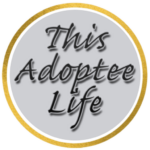


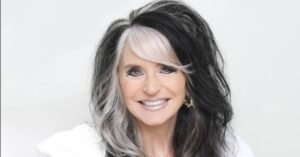
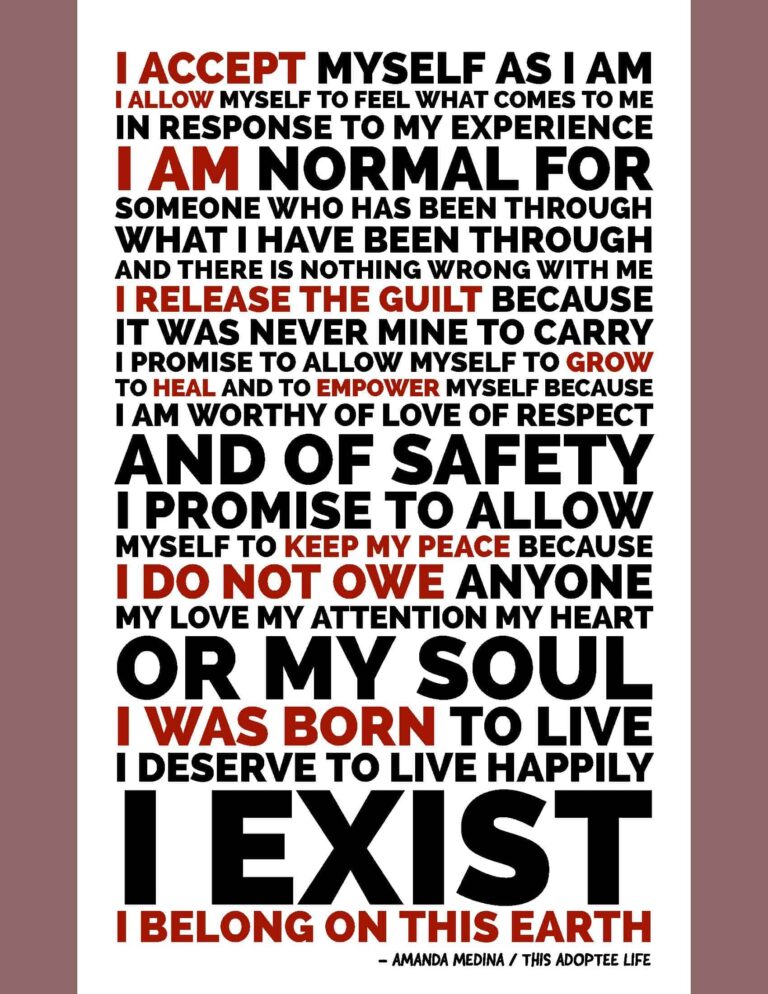
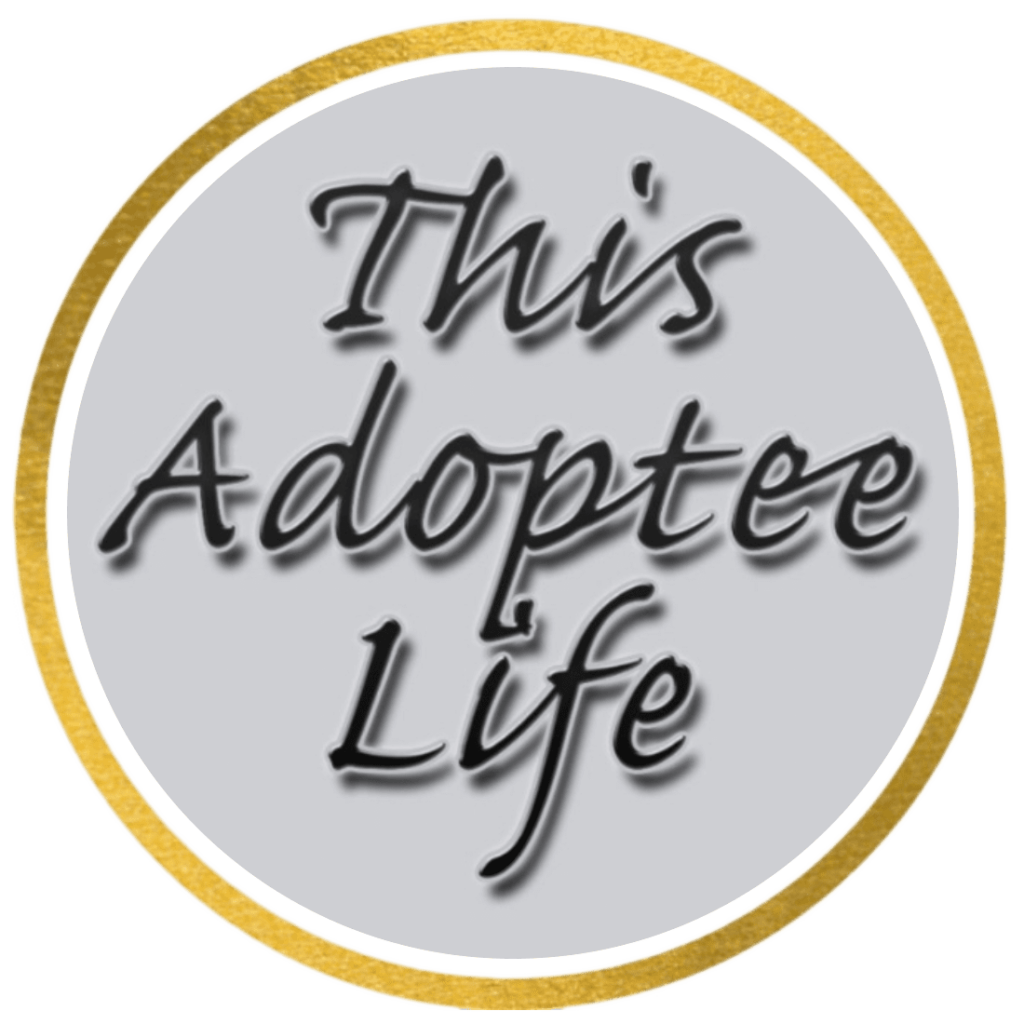
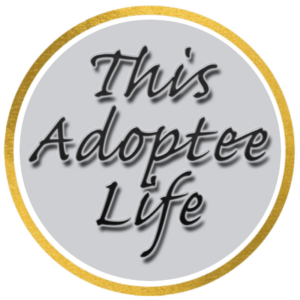
1 thought on “Adoption and Awarenss: Adoption AND Language”
Thanks for explaining how language can influence people’s perception of adoption. My friend wants to meet with an adoption lawyer soon. I’ll share this info to help her consider what language to use.